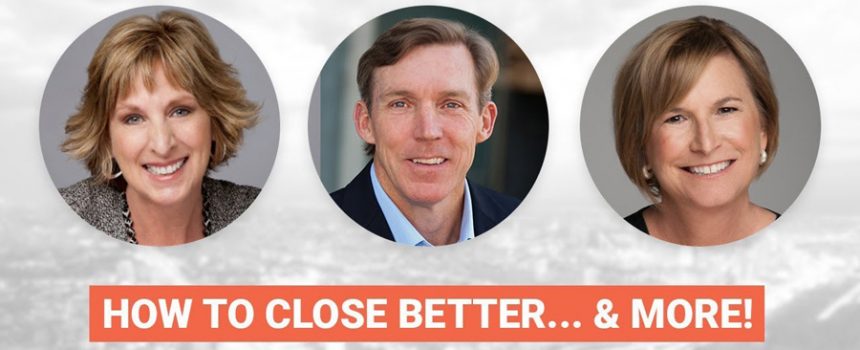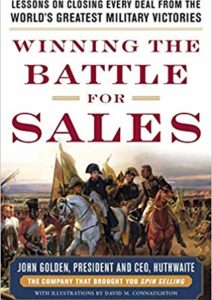Closing sales is an issue that affects everyone. It is an art form that is crucial to perfect and prepare for, or obviously, revenue generation will suffer. This article gives actionable tips to help salespeople close better, and more.
Closing:
Closing sales is a part of the sales process that deserves particular attention. It’s not a specific step in the sales process, but rather it’s done at every step along the way. It is a skill that needs to be developed, and you have to be confrontational and provocative while asking the tough questions to finesse this skill. You might also think of closing as a natural conclusion to your hard work, as opposed to a checkbox that needs to be completed. Customers don’t want to be “closed,” they want you to help them facilitate these conclusions. This process starts very early in the sales process so that by the time you get to the end, the closing comes naturally.
Dangers of Closing Too Early:
Sellers need to make sure they understand the buying process before trying to advance a sale. If they try to close too early or attempt to convince the client to do something they don’t want to, it’s not going to happen, and you will push them right out the door and into the arms of the competitors. Stay away from trying to advance things to quickly. It only tarnishes the relationship and potentially loses you the sale.
- Understand the sales process clearly to understand the appropriate time to close so that you aren’t inadvertently pushing a deal to a premature end.
- Look at where the buyer’s engagement is. They may be at the very beginning of their buying process, even if you are in a different part of your process.
Closing Too Late:
If the buyer is begging you for a contract, that is probably a clear sign that you are dragging the sales process on too long. Although this isn’t a common problem in the sales world, it can happen. The key is to stick with the sales process to close at the right time.
- When you look at the sales process, explore the different activities that are happening at each stage. Use verifiable evidence to help support your hypothesis of where you are at in the selling process and don’t jump to the next step too quickly or too late.
- Use a proper sales process that represents best practices, and check on where you are at in the process as you do your pre-call planning to ensure that you are staying in line with your sales plan, and avoid closing at an inappropriate time.
Check, Please!
Many salespeople find it difficult to consult with the customer after the close to ask for payment.
This happens for many reasons. Sometimes it can feel as if it is too pushy, or confrontational. Other times, it may feel like a disjointed part of the sales conversation. In the qualifying stage, one of the characteristics is asking about budget parameters. You start the financial discussion early on in the process so that when you take things to the next step and ask for the check, it is a seamless part of the buying process.
- If the salesperson is using the right strategies throughout the buying process, which include discussing financials and conversing in a gently confrontational manner, there won’t be this awkward ending after the sale has been agreed upon.
- When you get to the end of the sales process, and you’re facilitating the natural conclusion, it should be an end to a conversation that started much earlier. Ensure that you are planting the seeds to ask for the signature and payment long before you ask for it.
Set Up The Process:
There are some concrete things that you can do early on in the sales process to prepare yourself and the buyer for the close. While the close technically does happen at the end of the process, it is something that needs to be woven through the entire sales funnel.
- The key to setting up the process is to understand how an organization buys. If you don’t understand this, the selling steps may or may not be relevant. By following the methods and processes that the buyer will use, salespeople can then form their operation and the way that they sell around the buyer.
- After defining the sales process, break each step down further. To truly understand how to execute each stage, understand the characteristics that make the stage unique, the actions that you are going to take, different tools that might be helpful, other people or resources that you could utilize, and pre-prepared questions that might be helpful for completing each stage throughout.
Best Closing Techniques:
- When an executive has a need, they are very engaged. But, they will often delegate some of the buying processes to other people in the company. Get the salesperson to meet with the executive early in the sales cycle, and validate some of the information you have been gathering in the discovering phase. This is a good best practice because if things go off the rails at different parts of the sales process, there is already a relationship in a place where executives can contact each other.
- When asking for someone’s business, be quiet. Use silence. Once you ask the question, let the client answer.
- Go back to the sales process, and back to the work that you’ve already done to get feedback on what to continue doing right.
- Use regular language. “It sounds like we are on the same page, are we ready to go to the next step?” “What do we need to do to get this contract signed?” Use plain language to facilitate the conclusion.
Final Tips:
- Do ordinary things very well.
- Treat sales as a profession where you have to apply and expand your skills on a regular basis.
- Understand your customers, your accounts, and your territory. Try to know where executives are spending their time, money, and resources. If you have a solution to help them, that is where you should spend your time, money, and resources.
- Always have a pre-call plan. If you commit to pre-call planning, you will increase your close ratio.
Information for this article was sourced from this top sales professional panel discussion hosted by John Golden, featuring the expert opinions of Lisa Magnuson, John Flannery, and Janice Mars.












Comments